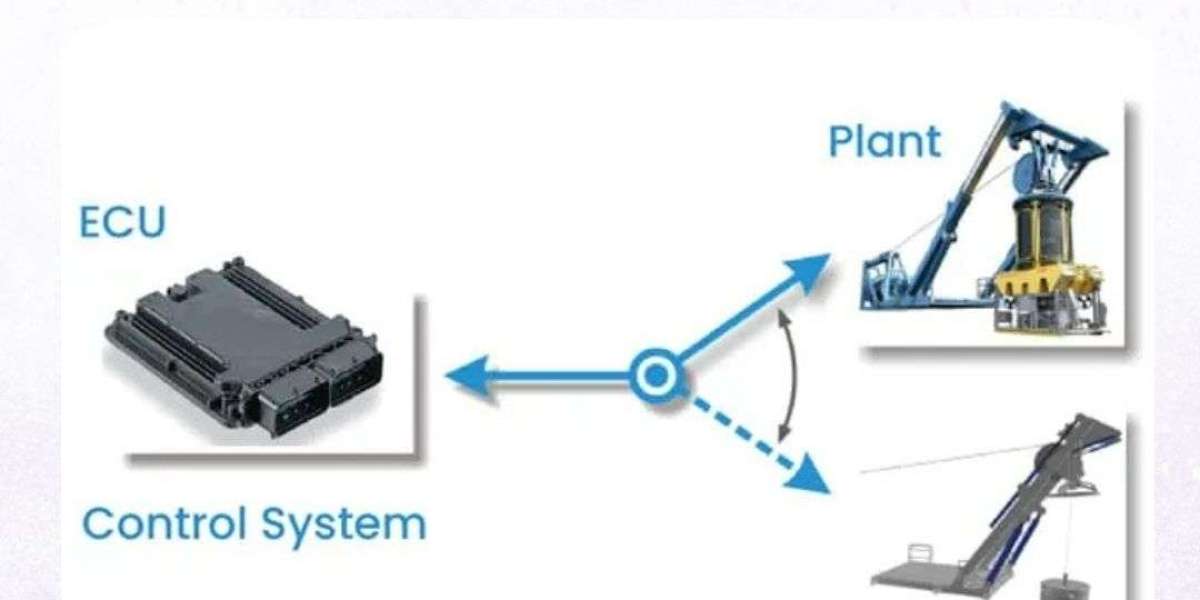In the modern automotive industry, safety is more than just a feature—it's a necessity. With advancements in technology, testing systems are evolving to ensure every aspect of a vehicle is thoroughly validated before it hits the road. One of the most effective methods for achieving this level of precision and reliability is Hardware-in-the-Loop (HIL) Testing. Servotech, a leader in HIL software testing, provides comprehensive solutions that improve the quality and safety of automotive systems by simulating real-world scenarios. In this article, we’ll explore the critical role of HIL testing in enhancing automotive safety and reliability.
What is HIL Testing?
HIL Testing is a process that combines physical hardware with simulated environments to test and validate automotive components. This approach allows engineers to assess system responses to various scenarios in real-time without risking human lives or physical prototypes. By connecting actual hardware (like ECUs, sensors, and other critical components) to a simulated environment, engineers can emulate conditions that a vehicle might encounter, ensuring each system responds safely and effectively.
Importance of HIL Testing in Automotive Safety
In today’s vehicles, complex systems like ADAS (Advanced Driver Assistance Systems), braking, steering, and infotainment require rigorous testing. HIL testing allows automotive engineers to detect potential issues early in development, reducing risks associated with software failures or unexpected component interactions. By validating each component’s behavior in real-world conditions, HIL testing ensures that all safety-critical elements function as intended under various driving scenarios.
Key Benefits of HIL Testing for Automotive Safety
Implementing HIL testing in automotive safety assessments offers several benefits:
Cost-Effective Development
Testing systems virtually reduces the need for physical prototypes, saving both time and expenses.Early Detection of Failures
Identifying issues during the early stages of development helps prevent costly and time-consuming corrections later on.Increased Testing Scope
HIL testing allows for complex and challenging scenarios, testing every safety-critical aspect of the vehicle.Enhanced Accuracy
By integrating physical components with software simulations, engineers get a realistic representation of system behavior.
How HIL Testing Improves Advanced Driver Assistance Systems (ADAS)
Advanced Driver Assistance Systems (ADAS) play a crucial role in modern automotive safety by assisting drivers and preventing accidents. HIL testing ensures that ADAS components, such as collision avoidance, adaptive cruise control, and lane-keeping assist, respond accurately to real-time data from the environment. Through simulated environments, Servotech can test how ADAS systems react to sudden stops, changing lanes, or various weather conditions, all without endangering lives.
The Role of HIL Testing in Electronic Control Unit (ECU) Validation
Electronic Control Units (ECUs) are essential for managing a vehicle’s core functions. These control units must respond seamlessly under various conditions to ensure passenger safety. HIL testing validates ECUs by simulating extreme conditions, such as rapid acceleration or emergency braking. Servotech’s HIL software testing solutions allow for precise and detailed ECU validation, ensuring consistent and reliable performance across a range of scenarios.
Simulating Real-World Driving Scenarios with HIL Testing
HIL testing enables engineers to simulate diverse real-world scenarios, such as rain, snow, traffic, and sudden obstacles. By mimicking these conditions, HIL testing prepares each automotive component to handle various driving environments. This capability is especially vital for electric and autonomous vehicles, which rely heavily on sensors and software to operate safely.
The Value of HIL Testing in Electric Vehicle (EV) Safety
As electric vehicles (EVs) become more popular, ensuring the safety of their high-voltage systems is paramount. HIL testing provides a safe, controlled environment to validate the performance of battery management systems, regenerative braking, and charging functions. Through advanced testing, Servotech ensures that EV systems can operate safely and reliably, regardless of road or weather conditions.
HIL Testing for Autonomous Vehicle Development
Autonomous vehicles rely on continuous data from sensors, cameras, and radar systems to navigate safely. HIL testing helps validate autonomous systems by simulating interactions with pedestrians, other vehicles, and changing traffic conditions. By rigorously testing these interactions, HIL testing supports the development of reliable autonomous systems, helping them make safe, data-driven decisions in real-time.
Advantages of Choosing Servotech for HIL Testing
Servotech’s expertise in HIL software testing offers a unique advantage to automotive manufacturers. Their cutting-edge testing solutions are designed to provide thorough, accurate insights into each component’s safety and performance. With a focus on realistic simulation, Servotech ensures that clients achieve optimal reliability in their automotive systems.
How HIL Testing Supports Regulatory Compliance
Automotive safety standards are continually evolving. HIL testing helps manufacturers stay ahead of these requirements by providing accurate testing data that demonstrates compliance with industry regulations. This proactive approach ensures that vehicles meet the highest safety standards, which is essential for both brand reputation and consumer trust.
Conclusion: Why HIL Testing is Essential for Automotive Safety
As automotive technology advances, so too does the need for comprehensive testing. HIL testing offers an innovative, effective solution for ensuring each component of a vehicle is prepared to handle real-world challenges. Servotech’s HIL testing solutions empower manufacturers to prioritize safety and reliability, building vehicles that drivers can trust. By simulating diverse conditions, detecting issues early, and validating complex systems like ADAS and ECUs, HIL testing is paving the way for safer, more resilient automotive designs.







